Common air conditioning problems in cars include refrigerant leaks and faulty compressors. These issues can reduce cooling efficiency or stop the system completely.
Air conditioning is essential for a comfortable driving experience, especially during hot weather. Many drivers encounter issues like weak airflow, warm air, or strange noises from the AC system. Identifying the root cause can save time and money on repairs.
Regular maintenance can prevent common problems and extend the air conditioning system’s life. Checking for refrigerant levels, inspecting the compressor, and ensuring all components are in good working order can help maintain optimal performance. Proper care keeps the car’s interior cool and comfortable, year-round, providing a pleasant driving experience.
Weak Airflow
Weak airflow from your car’s air conditioning system can be frustrating. It often means the AC isn’t cooling your car effectively. Several factors can cause weak airflow. Let’s explore some common reasons behind this issue.
Clogged Filters
A clogged filter is a common cause of weak airflow. When filters get dirty, air can’t pass through easily. This reduces the efficiency of your AC system.
To check if your filter is clogged, follow these steps:
- Locate the AC filter in your car’s manual.
- Remove the filter carefully.
- Inspect for dirt and debris.
If the filter is dirty, it’s time to replace it. Regular maintenance of your filters can prevent this problem.
Blower Motor Issues
The blower motor is responsible for pushing air through the vents. If it malfunctions, weak airflow is inevitable.
Signs of blower motor problems include:
- Unusual noises from the AC system
- Inconsistent airflow
- No airflow at all
To troubleshoot the blower motor:
| Action | Description |
|---|---|
| Check Fuses | Ensure the fuses related to the blower motor are intact. |
| Inspect Electrical Connections | Look for loose or damaged wires. |
| Test the Blower Motor | Use a multimeter to check if the motor is getting power. |
If the blower motor is faulty, consider replacing it. A functional blower motor ensures strong airflow in your car.

Credit: blog.openbay.com
Warm Air Instead Of Cool
Is your car’s air conditioner blowing warm air instead of cool? This is a common problem that can make summer drives unbearable. Understanding the causes helps you fix the issue quickly.
Refrigerant Leak
One major cause of warm air is a refrigerant leak. Refrigerant is the chemical that cools the air in your car. Without enough refrigerant, your AC can’t cool the air properly. Leaks can happen in the hoses, seals, or other parts of the AC system.
| Signs of a Refrigerant Leak |
|---|
| Hissing sound from the AC |
| AC blowing warm air |
| Oil stains around AC components |
Faulty Compressor
A faulty compressor can also lead to warm air. The compressor is the heart of your car’s AC system. It pumps refrigerant through the system. If the compressor is damaged, it can’t do its job. This means no cool air.
- Strange noises from the engine area
- AC doesn’t turn on
- AC cycles on and off frequently
To fix these issues, seek help from a professional mechanic. They can diagnose and repair your AC system, ensuring you stay cool on the road.
Foul Smell From Ac
Experiencing a foul smell from your car’s AC can be unpleasant. This issue often arises from a few common problems. Addressing these problems ensures a fresh and clean car environment. Let’s explore the main reasons behind this issue.
Mold Growth
Mold growth is a leading cause of bad smells in car AC systems. Moisture from the AC can create a breeding ground for mold. Over time, this mold emits a foul odor that spreads through the vents.
- Moisture buildup in the evaporator coil
- Clogged drains causing water to accumulate
- Unchecked humidity levels inside the car
Regularly cleaning the AC system helps prevent mold. Use disinfectant sprays designed for car AC systems. Ensure the drainage system works correctly to avoid water accumulation.
Dirty Cabin Air Filter
A dirty cabin air filter can also cause foul smells. This filter traps dust, pollen, and other contaminants. Over time, these particles clog the filter, leading to odors.
Here are common signs of a dirty cabin air filter:
- Reduced airflow from the vents
- Unpleasant odors when the AC is on
- Increased dust inside the car
Replacing the cabin air filter regularly helps maintain a fresh-smelling car interior. Check your car’s manual for the recommended replacement schedule.
| Problem | Solution |
|---|---|
| Mold Growth | Clean the AC system, use disinfectants, and ensure proper drainage |
| Dirty Cabin Air Filter | Replace the filter according to the car’s manual |
By addressing these common problems, you can enjoy a pleasant and odor-free driving experience.

Credit: www.beavertoyotacumming.com
Strange Noises
Strange noises from your car’s air conditioning system are alarming. These noises can indicate various issues. Identifying these sounds helps in quick fixes. Let’s explore some common causes of these noises.
Loose Parts
Loose parts are a common cause of strange noises. These parts may rattle or clang. This often happens due to wear and tear. Here are some signs of loose parts:
- Rattling sound when the AC is on.
- Vibrations are felt through the dashboard.
- Noticeable noise changes with speed variations.
Check for loose screws or bolts. Tighten them if needed. If unsure, consult a mechanic. Ignoring loose parts can lead to more damage.
Worn-out Bearings
Worn-out bearings also cause strange noises. Bearings help the AC compressor function smoothly. Over time, they wear out and become noisy. Listen for these signs:
- Squealing noise when the AC is running.
- Grinding sounds coming from the AC unit.
- High-pitched noises that get louder with use.
Replace worn-out bearings promptly. This prevents further damage. Seek professional help for bearing replacement. Keeping bearings in good condition ensures a quiet AC system.
Ac Cycles On And Off
One of the most common issues drivers face is when the AC cycles on and off. This problem can make the car uncomfortable, especially in hot weather. Understanding the root causes can help in solving this issue effectively.
Electrical Issues
Electrical problems can cause the AC to cycle on and off. These issues may include:
- Faulty Relays: Relays control the AC compressor. A faulty relay can cause the compressor to switch on and off.
- Blown Fuses: Fuses protect the electrical circuits. A blown fuse can interrupt the AC system.
- Wiring Problems: Damaged or corroded wires can lead to intermittent AC operation.
Refrigerant Level
The refrigerant level plays a crucial role in AC performance. If the level is not correct, the AC may cycle on and off. Key points to consider include:
| Refrigerant Issue | Description |
|---|---|
| Low Refrigerant | Low refrigerant can cause the AC to overheat and shut off. |
| Overcharged System | Too much refrigerant can also cause cycling issues. |
Regular maintenance can help avoid these problems. If you notice your AC cycling on and off, check for these common issues first.
Frozen Ac Components
Frozen AC components in cars are a common issue. This can lead to reduced cooling efficiency. It also puts extra strain on the AC system. Fixing this problem early can save you from costly repairs. Here are some common causes of frozen AC components:
Evaporator Coil Freeze
The evaporator coil is a crucial part of your car’s AC system. It absorbs heat from the air in your car. If the coil freezes, it can’t absorb heat effectively. This leads to a drop in cooling performance.
Several reasons can cause the evaporator coil to freeze. A dirty air filter is a common cause. It restricts airflow, leading to the coil freezing. Another cause is a faulty blower fan. This fan helps circulate air over the coil. If it fails, the coil can freeze.
Regular maintenance can prevent this issue. Replace your air filter regularly. Check the blower fan for any issues.
Low Refrigerant
Low refrigerant levels can cause your AC components to freeze. Refrigerant is essential for the cooling process. If levels are low, the system can’t cool properly. This can lead to the evaporator coil freezing.
A leak in the AC system usually causes low refrigerant levels. Common leak points include the hoses and seals. Regularly check these parts for any signs of damage.
If you suspect a refrigerant leak, take your car to a professional. They can identify and fix the leak. They will also recharge the refrigerant to the correct levels.
| Common Causes | Solutions |
|---|---|
| Dirty Air Filter | Replace Regularly |
| Faulty Blower Fan | Check and Repair |
| Low Refrigerant | Fix Leaks and Recharge |
Diy Maintenance Tips
Maintaining your car’s air conditioning system is essential. Simple DIY tips can keep it running smoothly. Learn some easy steps to ensure your car stays cool.
Regular Filter Replacement
A clean filter ensures proper airflow. It helps the AC work efficiently. Changing the filter is easy and quick.
- Locate the filter. It’s usually behind the glove box.
- Remove the old filter. Dispose of it properly.
- Insert a new filter. Ensure it fits snugly.
Do this every 12,000 to 15,000 miles. It keeps the air clean. It also prevents strain on the AC system.
Checking Refrigerant Levels
Refrigerant is crucial for cooling. Low levels can cause warm air. Checking it is simple with the right tools.
- Get a refrigerant gauge. Attach it to the low-pressure port.
- Read the gauge. It shows the refrigerant level.
- Add refrigerant if needed. Follow the instructions on the can.
Ensure you use the correct type. Overfilling can damage the system. Always wear safety gear when handling refrigerant.
When To Seek Professional Help
Car air conditioning problems can be frustrating. Sometimes, fixing them requires expert help. This section explains when to seek professional help. We’ll cover Complex Repairs and Safety Concerns.
Complex Repairs
Some air conditioning issues are tricky. Simple fixes like refilling the coolant can be done at home. But, some problems need special tools and skills.
- Electrical Problems: Diagnosing electrical faults is tough. Professionals have the right tools.
- Compressor Issues: The compressor is a critical part. Replacing it can be complex.
- Refrigerant Leaks: Finding leaks can be hard. Experts use special equipment.
Safety Concerns
Working on car air conditioning can be risky. Safety should always come first.
- Handling Refrigerants: Refrigerants are dangerous. They can cause frostbite or breathing issues.
- Electrical Hazards: Electrical systems can cause shocks. Professionals know how to handle them safely.
- High-Pressure Systems: Air conditioning systems are pressurized. Improper handling can cause injuries.
In summary, complex and risky repairs need a professional’s touch. Your safety and your car’s health are worth it.

Credit: www.roggisauto.com
Frequently Asked Questions
Why Is My Car AC Not Blowing Cold Air?
Low refrigerant levels or a clogged condenser can cause this issue. Check for leaks and refill refrigerant.
What Causes Car AC to Stop Working?
Common causes include refrigerant leaks, faulty compressors, and electrical issues. Regular maintenance can prevent these problems.
How Do I Know If My AC Compressor Is Bad?
Signs include strange noises, warm air, and a non-engaging clutch. A professional diagnosis is recommended.
Why Does My Car Ac Smell Bad?
A bad smell usually indicates mold or bacteria in the evaporator. Cleaning or replacing the cabin filter may help.
What Causes Ac Refrigerant Leaks?
Leaks often occur due to damaged hoses, seals, or connectors. Regular inspections can help identify early signs of leaks.
How Often Should Car Ac Be Serviced?
Service your car AC every one to two years. Regular maintenance ensures optimal performance and extends the system’s life.
Conclusion
Regular maintenance can prevent common air conditioning problems in cars. Address issues promptly to avoid costly repairs. Ensure filters are clean and refrigerant levels are adequate. Don’t ignore strange noises or weak airflow. By keeping your car’s AC system in top shape, you can enjoy comfortable drives all year round.


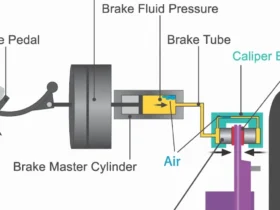

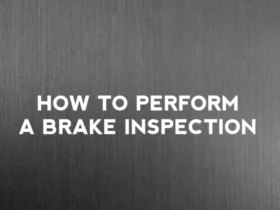
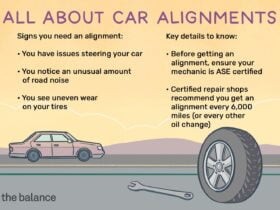
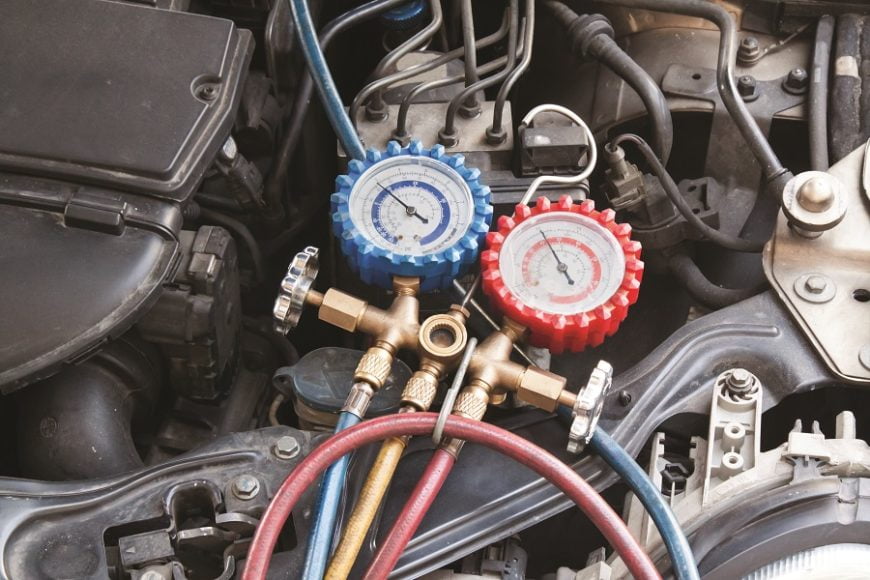

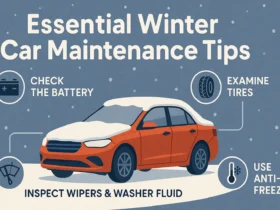



Leave a Reply